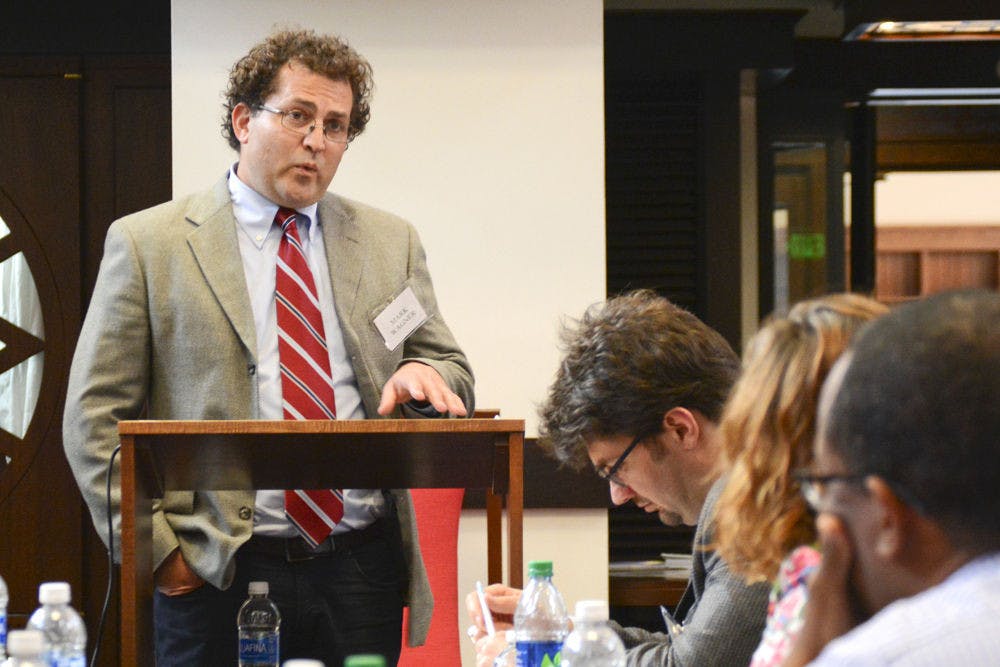Scholars spoke about the history of Jewish-Muslim relations at UF on Wednesday.
UF and international researchers came together at Smathers Library to discuss the two religions’ mutual influences, culture, language, philosophy and rituals. The event, attended by about 25 people, took less than a year to plan and cost about $15,000.
The Center for Global Islamic Studies and the Center for Jewish Studies organized the event.
Jack Kugelmass, the director of the Center for Jewish Studies, said he wanted the Gainesville community to learn about Jewish-Muslim history.
He said people might not be aware of the depth of the current Jewish-Muslim conflicts, which are influenced by history.
Terje Ostebo, the director of the Center for Global Islamic Studies, said scholars shared research findings they have been working on for years.
The first panel discussed the locations where Muslims and Jews live in the Middle East. In history, there have been tensions over Jewish settlement in the predominantly Muslim Middle Eastern cities.
Michelle Campos, an associate professor of Middle Eastern history at UF, said it’s important to understand the history each Middle Eastern city has.
“In order to understand what happened to these imperial spaces, we must better understand those places on their own terms,” Campos said.
Campos said her interest in the history of the two faiths came from her doctoral project about Palestine’s political history. The project entailed Muslims, Christians and Jews demanding equality and the right to vote in Israel’s parliament, the Knesset, in the early 1900s.
After the project, she said she still had unanswered questions about how Jerusalem could be shared between the cultures. Her current project seeks to answer those questions.
“This project is really trying to give more of a social historian look at things I earlier asked,” Campos said.
Campos said Jerusalem is the most studied Middle Eastern city and there are huge areas of it in which nothing is known about the city’s history. Her current project, which she presented, attempts to fill in gaps about day-to-day life in the Middle East.
Sherman Wilhelm, a UF economics and statistics junior, said he attended the event as part of a diversity project. He said he was surprised by the amount of information he learned.
“I thought it would be cool to learn how Jewish and Muslim cultures interact, especially now with everything going on in the Middle East,” the 21-year-old said.
Wilhelm said he did not expect the conference to be as intellectually in-depth as it was.
“It was a very different perspective,” he said. “It was good to hear from someone who knows about it and not just regular students.”
Mark Wagner, an associate professor of foreign language and literature at Louisiana State University, answers a question in the Judaica Suite of the Smathers Library on Wednesday during the Q&A portion of his talk, “Sexual liaisons between Muslims and Jews in 20th century Yemen.” Wagner was one of several scholars invited by the Center for Global Islamic Studies and the Center for Jewish Studies for a conference discussing the history of Muslim-Jewish relationships.






